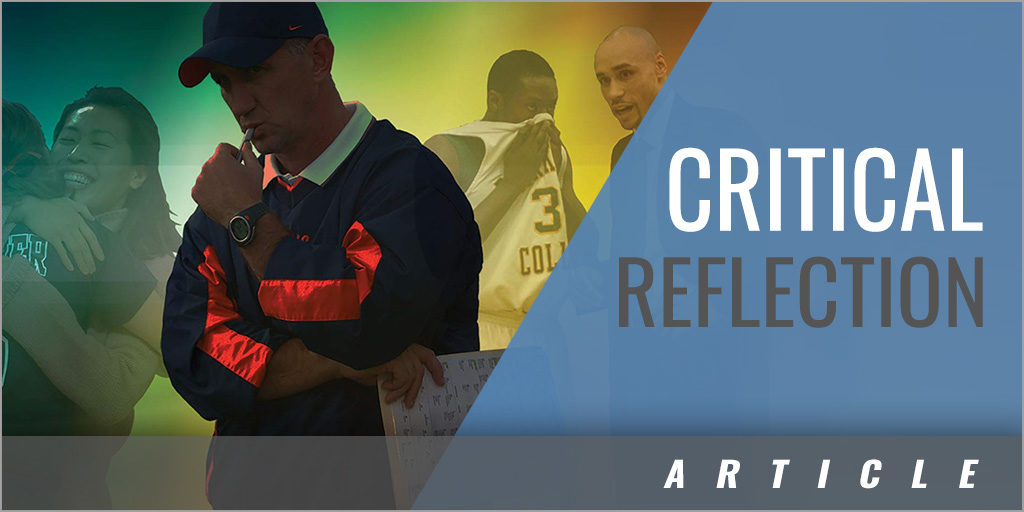|
By: Wade Gilbert Originally Published in: Coaching Better Every Season Provided by: Human Kinetics Unlike reflective practice, critical reflection is not focused on solving a specific problem. Critical reflection is used more sparingly, but still regularly, to update evolving views on coaching. The off-season, when coaches typically have fewer demands on their time, is the ideal time for coaches to reflect on their coaching purpose, core values, and general approach to coaching. Critical reflection is the type of reflection coaches engage in when they think about their feelings or general coaching philosophy. The result of critical reflection is the reorganization of the coach's mental model of coaching and better coaching. For example, a study with 35 soccer coaches found that regularly setting aside time for critical reflection was considered a transformative coaching experience. Through critical reflection on performance issues and their own coaching behaviors, coaches increased their confidence and built more positive relationships with their athletes. Reflective practice and critical reflection can be portrayed as two separate, but interconnected, wheels of learning. Reflective practice is sometimes referred to as single-loop learning (one wheel), whereas critical reflection is sometimes described as double-loop learning (both wheels)! Reflective practice involves cycling through the four steps in a reflective conversation (problem setting, strategy generation, experimentation, and evaluation). Coach thinking is focused on addressing and ultimately resolving a specific performance gap, hence the single-loop analogy. With critical reflection, coaches will naturally still reflect on performance gaps (single loop) but will also pause to think about their coaching philosophy and coaching approaches (double loop). The value of critical reflection is that it provides coaches with a more vivid awareness of their general coaching philosophy, potential areas for targeting future continuous improvement efforts, and a more authentic and humble view of what it takes to succeed as a coach, referred to as practical wisdom. Leadership expert Peter Economy provides examples of critical reflection, or double-loop learning, questions that leaders should ponder on a regular basis. The questions, adapted for coaches, follow:
|






